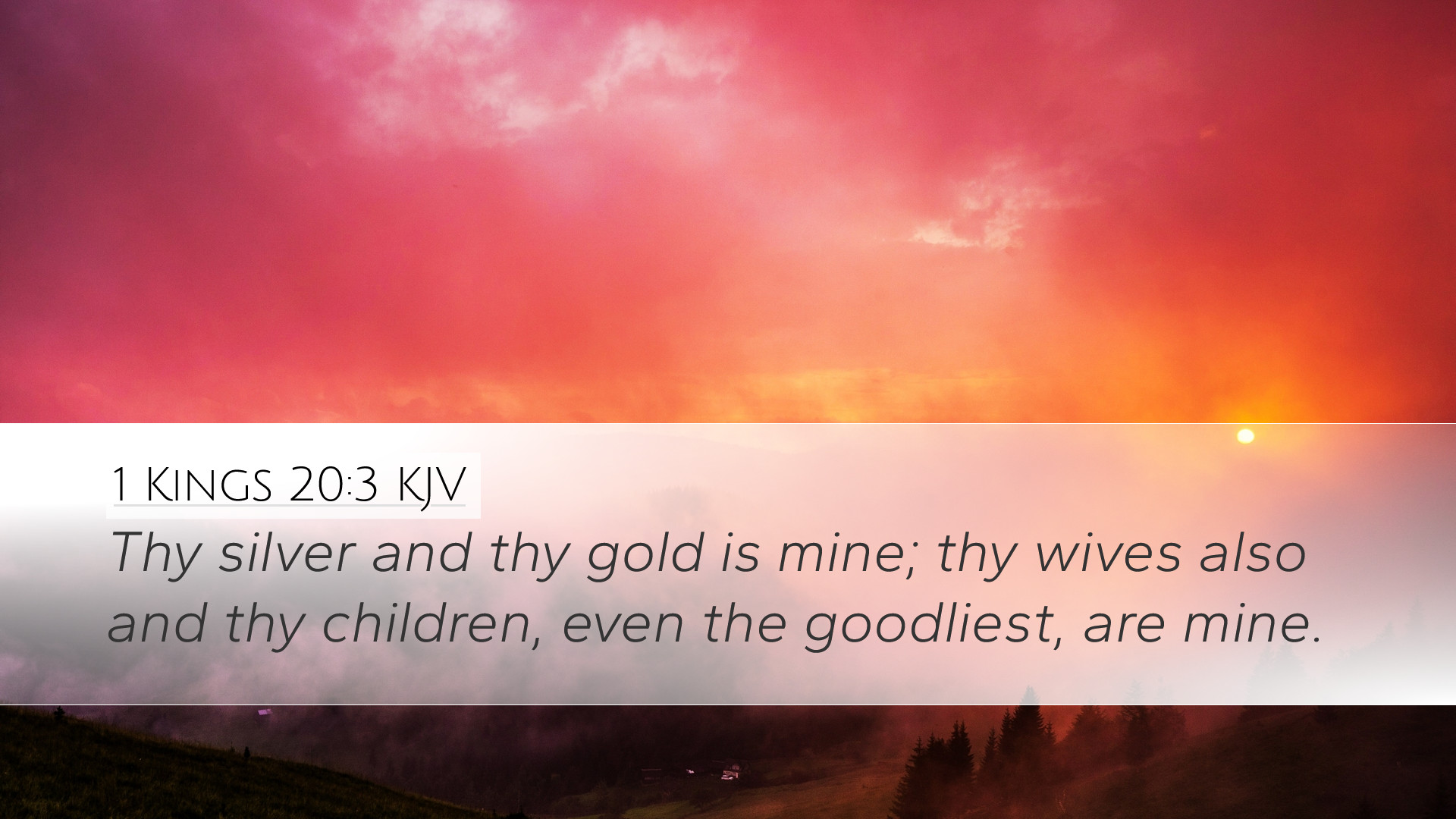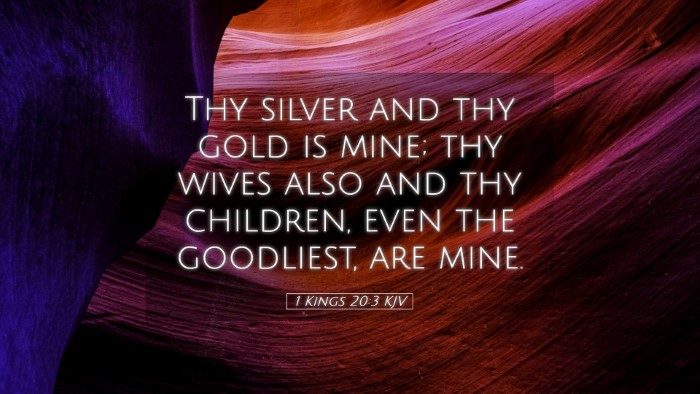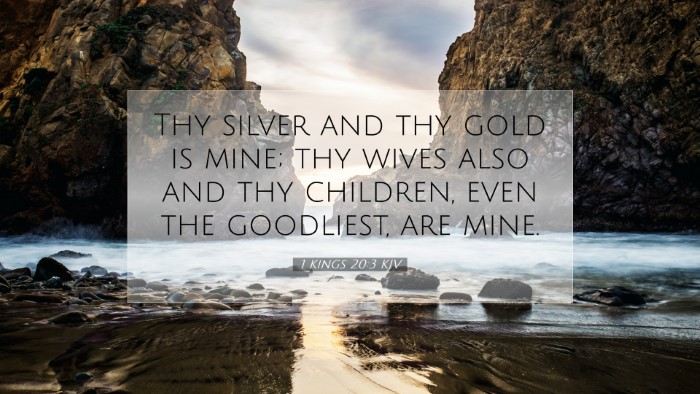Commentary on 1 Kings 20:3
Bible Verse: "But thou shalt send unto my father, and say, Thus saith Ahab, Thy servant, and I have sent unto thee, saying, Give up thy silver and thy gold, and thy wives and thy children." (1 Kings 20:3)
Context Overview
The narrative of 1 Kings 20 revolves around the conflict between King Ahab of Israel and Ben-hadad, the king of Syria. Following a series of victorious engagements, Ben-hadad seeks to solidify his power by demanding significant tributes from Ahab, which include not only wealth but also personal and familial sacrifices.
The Claims of Ben-hadad
Ben-hadad's audacious demands illustrate the aggressive posture of surrounding nations toward Israel during this period of Israel's history. This situation emphasizes the spiritual decline of Israel under Ahab’s leadership, indicating a lack of reliance on God and a shift towards appeasement in foreign relations.
Insights from Matthew Henry
Matthew Henry points out that Ahab’s negotiation with Ben-hadad reveals his character; he shows an inclination towards submission rather than assertiveness in defending his sovereignty. Henry remarks:
"In making this request, Ahab betrayed a weakness in his leadership and a desire to keep peace at any cost, which ultimately undermined his authority and the nation's security."
Albert Barnes' Commentary
Albert Barnes offers valuable reflections on Ahab’s position. He notes that Ahab’s plea indicates a significant humbling before an adversary, which was uncharacteristic for a king of Israel. Barnes observes:
"Ahab's acceptance of the terms reflects not only his fear of Ben-hadad but also a resignation to the inevitable power dynamics of the region, as he forsook the commandment and the assurance of God’s previous deliverances."
Adam Clarke's Insights
Adam Clarke emphasizes the challenge of King Ahab’s situation, noting the moral implications of Ben-hadad’s demands. Clarke interprets the request as one reflecting a darker reality of territorial politics:
"The tenor of the demand suggests not only material loss but a deeper threat to Ahab's rule, as the emotional burdens of giving up family and wealth illustrate a king caught in political entanglements that threaten to strip Israel of its identity and dignity."
Theological Implications
This passage in 1 Kings provides rich ground for theological reflection. It speaks to issues of leadership, power, and divine sovereignty:
- Leadership and Compromise: Ahab's willingness to negotiate away significant aspects of his reign raises questions about the nature of true leadership in the face of external threats.
- Divine Sovereignty: Despite Ahab's faltering faith and political maneuvering, God remains sovereign over the affairs of nations, urging faithfulness above the pragmatics of survival.
- Redemptive Reflection: The personal sacrifices demanded echo deeper themes of surrender and sacrifice that are ultimately fulfilled in Christ, where the cost of following God transcends worldly gain.
Conclusion
In summary, 1 Kings 20:3 serves as a poignant reminder of the fragility of power and the disastrous consequences of inadequate reliance on God. The insights from Matthew Henry, Albert Barnes, and Adam Clarke collectively highlight Ahab’s character flaws while inviting modern readers to reflect on their own responses to the pressures of leadership, obedience, and faith. As Ahab faced a pivotal moment of decision and potential compromise, so too are believers called to navigate the complexities of faithfulness in a world often demanding greater concessions.


